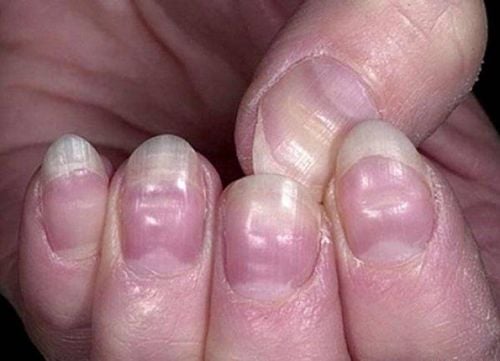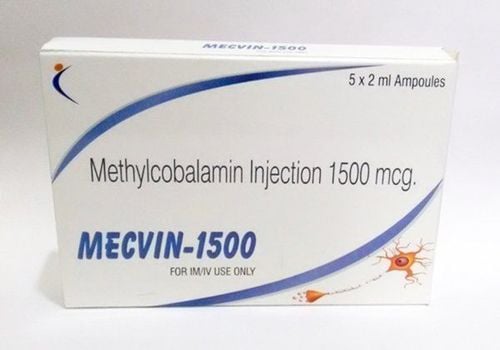Changes in nail color, shape, or appearance may signal an underlying health issue. Regularly checking the nails can help detect serious conditions early, including spoon-shaped nails, also known as koilonychia.
1. What are spoon-shaped nails?
Dr. Amy Derrick, a lecturer in the Department of Dermatology at Northwestern University, USA, states that there are more than 30 signs on the nails that reflect health issues, including spoon-shaped nails (koilonychia), also known as spoon-shaped nails.
Spoon-shaped nails occur when the center of the nail (or toenail) dips in, and the edges around the nail rise, creating a shape resembling a spoon. Spoon-shaped nails are capable of holding a drop of water on the surface.
With this condition, the nails become thinner, may crack, and the outer part of the nail can easily separate from the nail bed. These spoon-shaped indentations usually appear most often on the fingernails, but occasionally, the condition can also affect the toenails.
2. The mechanism behind spoon-shaped nails
The exact mechanism that causes spoon-shaped nails is not yet fully understood. It is believed that the condition may be related to the softening of the nails and nail bed, but the exact cause remains unclear.

3. Causes of spoon-shaped nails
The most common cause of spoon-shaped nails is iron deficiency or anemia. Patients with spoon-shaped nails often have lower than normal red blood cell counts.
Additionally, spoon-shaped nails can also be a consequence of chemotherapy or radiation therapy for cancer, frequent exposure to oil-based solvents or cleaning agents, or the body’s inability to absorb necessary nutrients. Hairdressers are also prone to this condition due to the daily exposure to hair care products.
Spoon-shaped nails are often associated with chronic conditions such as diabetes, cardiovascular diseases, malnutrition, protein deficiency, vitamin deficiency, psoriasis, or thyroid disorders, as well as Raynaud's syndrome.
Another potential cause of spoon-shaped nails, which can affect many people, is genetics or environmental factors. A study in the elderly showed that over 47% of older adults had ingrown toenails, and those in manual labor jobs are at a higher risk of developing this condition.
According to the results of another study, spoon-shaped nails are common in 32% of children living in rural areas and occur in 17% of children living in urban areas. This has been explained by the higher risk of foot injuries in children in rural areas, as they often go barefoot or have to soak their feet in water.
4. Care methods for spoon-shaped nails

To apply the correct treatment method and recover quickly, patients should consult a doctor for an accurate diagnosis of the underlying cause when symptoms are detected. If the cause of spoon-shaped nails is addressed, the condition will gradually improve and disappear.
If the spoon-shaped nails are due to anemia, patients should modify their diet to include more iron. Foods rich in iron, such as red meat, beef, seafood, and peas, should be consumed more frequently. Additionally, patients should eat more foods containing vitamin C, as vitamin C helps the body absorb iron from food much better.
In cases where spoon-shaped nails are caused by the body's inability to absorb vitamin B12 from food, patients can supplement with B12 tablets as prescribed by their treating doctor.
5. Caring for spoon-shaped nails
Patients with spoon-shaped nails should keep their nails dry and clean daily to prevent infections in the affected areas. It is especially important to completely stop the habit of biting nails. Nails should be trimmed short, and a moisturizing cream should be applied after bathing to keep the nails hydrated. Protective gloves should be worn for the skin and nails when performing tasks that involve contact with chemicals or oil-based solvents.
To arrange an appointment, please call HOTLINE or make your reservation directly HERE. You may also download the MyVinmec app to schedule appointments faster and manage your reservations more conveniently.














